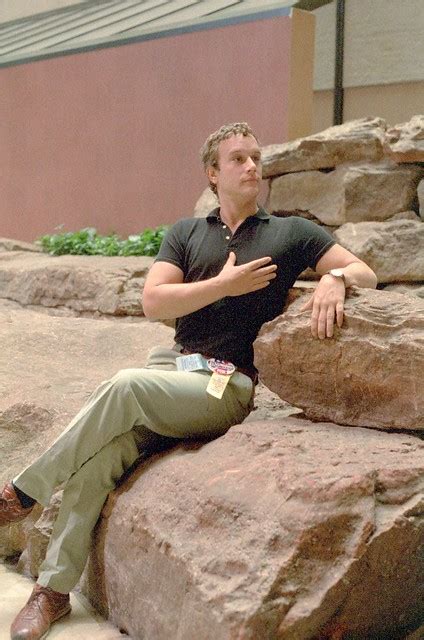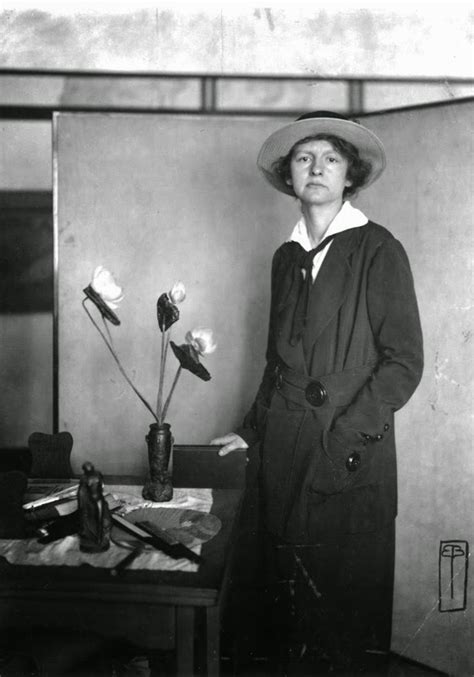A Quote by Maria Edgeworth
[On collectors of quotations:] How far our literature may in future suffer from these blighting swarms, will best be conceived by a glance at what they have already withered and blasted of the favourite productions of our most popular poets.
Related Quotes
Maria Edgeworth grumbled against vandals who ruined immortal works by quoting the life out of them. "How far our literature may in future suffer from these blighting swarms, will best be conceived by a glance at what they have already withered and blasted of the favourite productions of our most popular poets." Shakespeare, Milton, and Dryden, scissored, patched, and frayed.
If you think about human nature, our favourite pair of shoes are the ones we bought yesterday, our favourite thing is the newest thing that we have…and the thing we’ve seen the most and for the longest period of time is our reflection in the mirror, so obviously that’s going to be our least favourite thing.
How fleeting are the wishes and efforts of man! how short his time! and consequently how poor will his products be, compared with those accumulated by nature during whole geological periods. Can we wonder, then, that nature's productions should be far 'truer' in character than man's productions; that they should be infinitely better adapted to the most complex conditions of life, and should plainly bear the stamp of far higher workmanship?
He's the best of us. The best of our best, the best that each of us will ever build or ever love. So pray for this Guardian of our growth and choose him well, for if he be not truly blessed, then our designs are surely frivolous and our future but a tragic waste of hope. Bless our best and adore for he doth bear our measure to the Cosmos.
Like Muslims we assume that God will judge us "on balance." If our good deeds outweigh our bad deeds, we will arrive safely in heaven. But, alas, if our evil deeds outweigh our good ones, we will suffer the wrath of God in hell. We may be "marred" by sin but in no wise devastated by it. We still have the ability to balance our sins with our own righteousness. This is the most monstrous lie of all.
How can we not believe in the greatness of America? How can we not do what is right and needed to preserve this last best hope of man on Earth? After all our struggles to restore America, to revive confidence in our country, hope for our future - after all our hard-won victories earned through the patience and courage of every citizen - we cannot, must not, and will not turn. We will finish our job. How could we do less? We're Americans.
But we were born of risen apes, not fallen angels, and the apes were armed killers besides. And so what shall we wonder at? Our murders and massacres and missiles, and our irreconcilable regiments? Or our treaties whatever they may be worth; our symphonies however seldom they may be played; our peaceful acres, however frequently they may be converted into battlefields; our dreams however rarely they may be accomplished. The miracle of man is not how far he has sunk but how magnificently he has risen. We are known among the stars by our poems, not our corpses.
Electronic brains may help us to use our heads but will not excuse us from that duty, and as to our hearts-cardiograms cannot diagnose what may be most ill about them, or confirm what may be best. The faithful woman and the versatile brave man, the wakeful intelligence open to inspiration or grace-these are still exemplary for our kind, as they always were and always will be.
We must teach our people the greatness of China's historical culture. In our educational program we must stress Chinese history and geography so that all may know and appreciate China's civilization of five thousand years and the far-flung boundaries of our ancient race. This will engender a greater faith in our own future.
... the loss of belief in future states is politically, though certainly not spiritually, the most significant distinction betweenour present period and the centuries before. And this loss is definite. For no matter how religious our world may turn again, or how much authentic faith still exists in it, or how deeply our moral values may be rooted in our religious systems, the fear of hell is no longer among the motives which would prevent or stimulate the actions of a majority.
If sophistication is a matter of being in control of our primary reactions, we may now be sophisticated. At least we shall be fairly confident of ourselves and may, with any luck, be confident of others. Our object will be to enjoy our selves. But to make sure that our names are permanently on the cast list, it will be advisable to be of interest to others. This aim must never be confused with the desire to be popular.






































